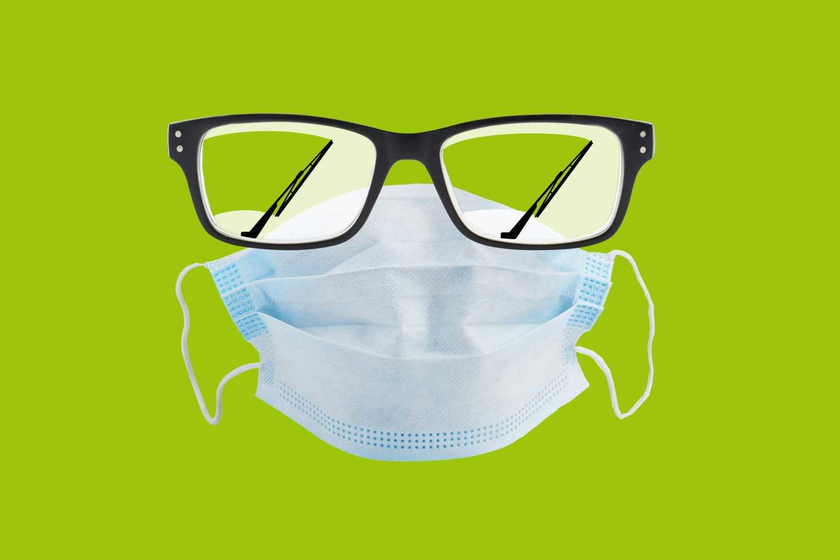Slogans are for people who need to be told what to think.
If you have ever come across an interview with now somewhat-legendary Swedish epidemiologist Anders Tegnell and his stance about the masks, you will hear the following sentence: "There is no evidence that masks have an effect in general population".
Emphasis - "in general population".
This was a moment when I recongized that Dr. Tegnell - unlike many of his colleagues - was acknowledging the limitations of scientific method. One such a limitation is that the conlusions of any study/studies are contextual - tied by the context of the study/studies - unless evidence supports otherwise.
The truth is, yes, certain type of masks can have protective effect - yet, that effect has only been supported by studies performed in very specific indoor environment - such as hospital - or laboratory environment. However, neither of those contexts is "a general population". Hence, one could only speculate that previously observed effect could be the same, yet - since we need to "follow the science" - we have to acknowledge that also otherwise could be true - unless evidence supports otherwise.
For a while, I was looking forward to see the results of so-called "Danish study" that was designed specifically to test the effectivness of masks in this context: "the general population". Surprise, surprise (or not) - my first news the study was out came from the articles trying to undermine the conclusions of the study by focusing on the limitations (When was the last time you came across an article focusing on the limitation of the conclusion relevant to climate change? 😁)
So, in short, Danish study found no evidence that masks have any protective effect for the "mask wearer". Here, I will be fair and acknowledge the study truly does have limitation - it did not test for the protective effect toward people around "mask wearers". Moreover, as one of great comments pointed out below the study, quote:
"From a general perspective, the DANMASK-19 study results, independent from other issues likely biasing the results towards “no effect” as discussed in other comments, cannot quantify efficacy, i.e. the maximum possible effect of an intervention, but effectiveness, i.e., the intervention effect observed under “real life conditions”. Effectiveness is often (much) smaller than efficacy, owing to manifold interferences, perhaps including the confounding effect suggested above. As “real life conditions” largely mean the societal and historical context, the following conclusions can be drawn: (i) effectiveness as observed in the study cannot be easily generalised; (ii) efficacy of wearing adequate masks adequately is underestimated by the current results, to an unknown extent; (iii) contrary to clinical interventions, the (individually) randomised controlled trial cannot necessarily be regarded as gold standard to assess efficacy on the population level."
In other words, study has not showed efficacy - maximum possible effect, but the study did show the effectivness - which, considering most people are not trained to properly wear and dispose of mask, is probably only thing that matters. Sure, it si not a gold standard, but neither is rtPCR as diagnostic tool 😉.
With that, I'll leave you with a link to access Danish study. I highly recommend to have a look at the comments and answers under study, clearly, coming from scientists from both pros/cons point of view.
If you have any question, regarding study, or want to discuss particular comment, please, hit me in the comments.
As a perk for my active supporters, I will post links to several other studies discussing the protective effect of masks in general population.
Context matters, folks, it really does. 😀

This was a very late recording contrasting two news articles about Omicron - so called "Covid super-strain".
I know I haven't been around lately...work...life...However, the 12-years-old clip popped into my feed and I wanted to share it. The reason? This clip provides the great basic understanding into what are the issues with so-called "evidence" related to anthropogenic (human-induced) climate change and the lack of logic when it comes to the interpretation of such evidence. The sad reality is that even after 12 years from this clip, we are still forced to endure nonsensical conclusions that hurricanes hitting Florida are caused by big bad climate change.
The mainstream media is doubling down on the alarmism, and it is not hard to guess why. However, to be fair, consider my little observation an educated guess, an opinion, rather than the fact. Time will show whether I am right.
(1) 'Climate change affects everyone': Europe battles wildfires in intense heat by Reuters (https://www.reuters.com/business/environment/spain-portugal-battle-wildfires-heatwaves-scorch-southern-europe-2022-07-17/)
If you spent time in Southern Europe, Mediterranean, during summer season - July and August in particular - you probably know that heat-induced wildfires are nothing new. In fact, they are quite common and remarkably devastating for the affected communities, and I have witnessed several in person. Most of the time, the wildfires occur due to heat igniting grasses, especially in the areas where there are broken glass or broken bottles. The glass serves as an amplifier for the sun rays, especially, in the vicinity of dry grasses, or even dry pine needles, and as ...












